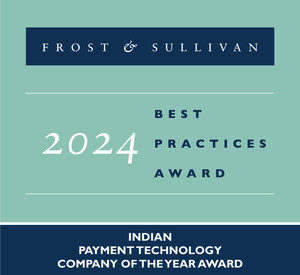South Africa's food and beverage industry a key driver for future economic growth
Frost & Sullivan estimates sales growth between 5%-7% in the food and beverage industry between 2018 - 2020
CAPE TOWN, South Africa, Oct. 1, 2018 /PRNewswire/ -- With South Africa having the most advanced and refined food and beverage market on the African continent, Frost & Sullivan believes in a 4%-7% estimated growth in the sector by 2020. The agricultural, agro-processing and food and beverage industries provide an abundance of opportunity for investors as well as key domestic and new players.
If you are interested in discovering further insights on South Africa's food and beverage outlook or speaking with our experts, please call (021 680 3574) or email me ([email protected])
The sustainability of the agriculture and food and beverage industries is dependent on the economical and agricultural production recovery, stimulus programs by government and policy reform outcomes; this is according to Justin Malherbe, Chemical, Food and Beverage consultant at Frost & Sullivan. The South African government, The Department of Trade and Industry (DTI) and the Department of Trade and Investment in South Africa (TISA) have identified these sectors as a focus for local manufacturing opportunities, import substitution, employment as well as export and economic growth, he says.
South Africa's agricultural sector accounts for approximately 12% of its export earnings with the fruit and vegetable industry showing rapid growth during the past 20 years. Exports reached nearly 60% of local production. With the beverages, spirits, vinegars, sugars and the residue food industry being the most significant contributors to South Africa's imports in 2017 of approximately R36.6 billion in value, Frost & Sullivan believes that the recovery of the South African economy and the growth and recovery in neighbouring SADC export destinations will result in an increased local demand.
Stock farming also remains a viable investment opportunity for South Africa, with over 80% of the country's land suitable land for grazing and livestock playing a significant part by contributing 48% towards the country's output valued at approximately R50 billion.
Agro-processing is South Africa's largest subsector of manufacturing with 64% - 74% of the raw materials locally sourced. With the agro-processing industry and its products accounting for 19.4% of the employment in the manufacturing industry and 21% of the GDP is from the manufacturing sector, opportunities exist to extend exports to the growing Middle-East and Asia markets, while sustaining growth in exports to the more developed Global North. Value added products like artificial and organic energy drinks or products will see more prominence in the market.
Increased local demand combined with peak interest from export destinations sees the alcoholic beverage industry provides a lucrative opportunity as South Africa has seen a 30% growth in its alcoholic beverage exports. Although the country only contributes 2% of China's wine imports, South Africa accounts for over 30% of African imports in the alcoholic and beverage sector.
The vast and growing need of Europe's beverage industry of deciduous fruits accelerates export opportunities based on seasonal differences and high quality local products. This is further bolstered by raised duty free quotas with Europe. Coupled with the SADC trade agreements and the development of the Tripartite Free Trade Agreement, this boasts further regional export opportunities.
The Rapidly growing GCC region's stock farming demand, 80% attributable to KSA, provides opportunities for niche and premium markets. South Africa is the 4th largest wheat producer in Africa with a highly developed and well regulated industry; however, local demand exceeds production by a significant margin, providing growth opportunities in local production or import substitution.
Although the agriculture and food and beverage industry remains a core focus for the country's economic growth, the increased political uncertainty, a current technical recession and land reform policies have resulted in decreased investor confidence and could prove detrimental to the South African economy.
However, President Cyril Ramaphosa has announced an economic recovery and stimulus plan focused on the agriculture industry, its employment and economic growth potential with a focus on labour intensive export based crops. A focus will be on efficient education on farming, institutions, efficient irrigation systems and technology, financing options and the introduction of communal areas to commercialism. Crucial to the direction and success of this plan to stimulate the South African Agriculture sector and therefore economy is the land reform discussions and action points as well as their success.
It remains imperative that the factors forbidding growth in the food and beverage industry are managed positively in order to capture the opportunities the food and beverage industry is capable of.
About Frost & Sullivan
Frost & Sullivan, the Growth Partnership Company collaborates with clients to leverage visionary innovation that addresses the global challenges and related growth opportunities that will make or break today's market participants. For more than 50 years, Frost & Sullivan has been developing growth strategies for the global 1000, emerging businesses, the public sector, and the investment community.
Contact:
Donna Liedemann
Corporate Communications – Africa
P: +27 21 680 3574
F: +27 21 680 3296
E: [email protected]
T: @FrostSullivanSA
http://www.frost.com






Share this article